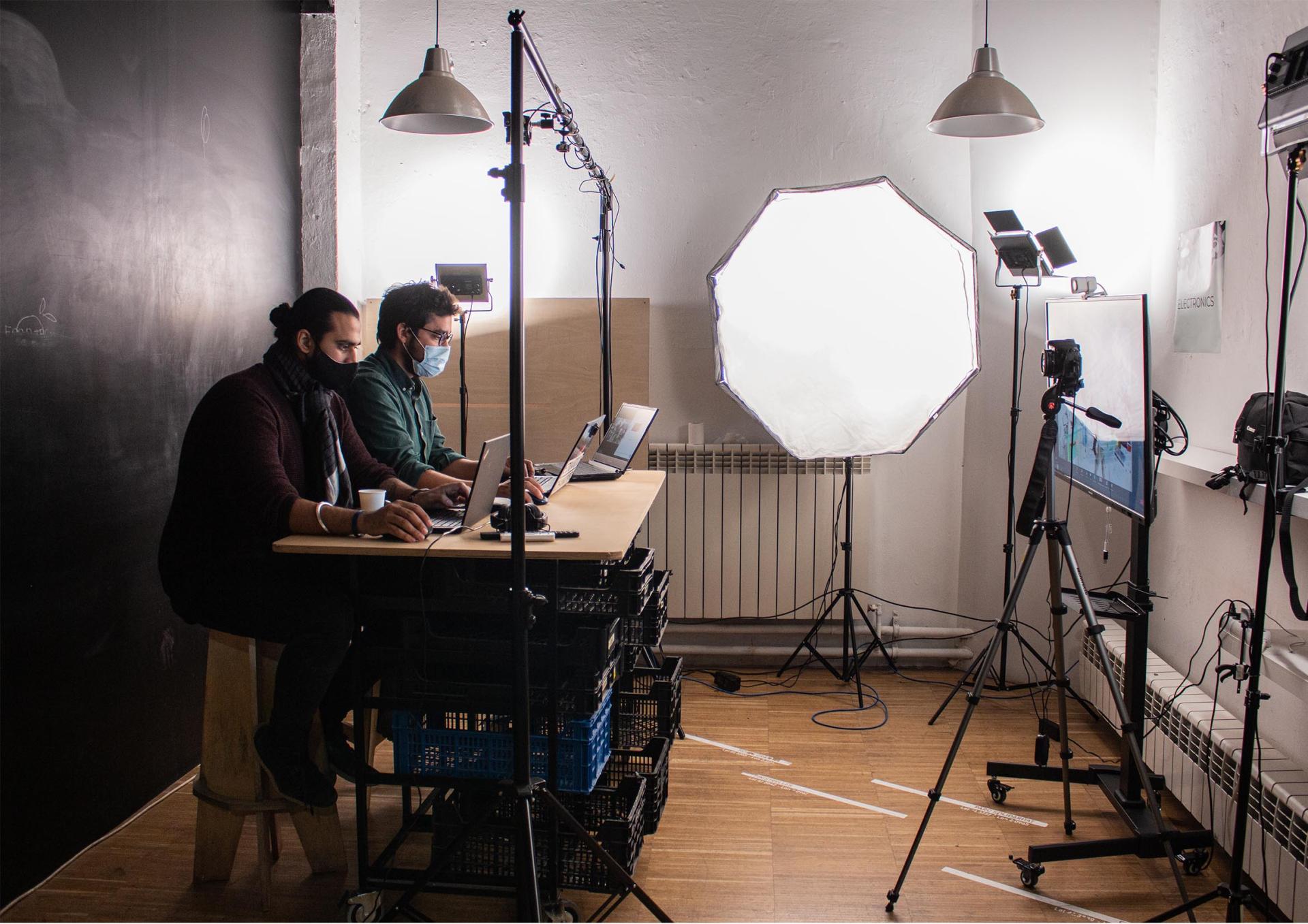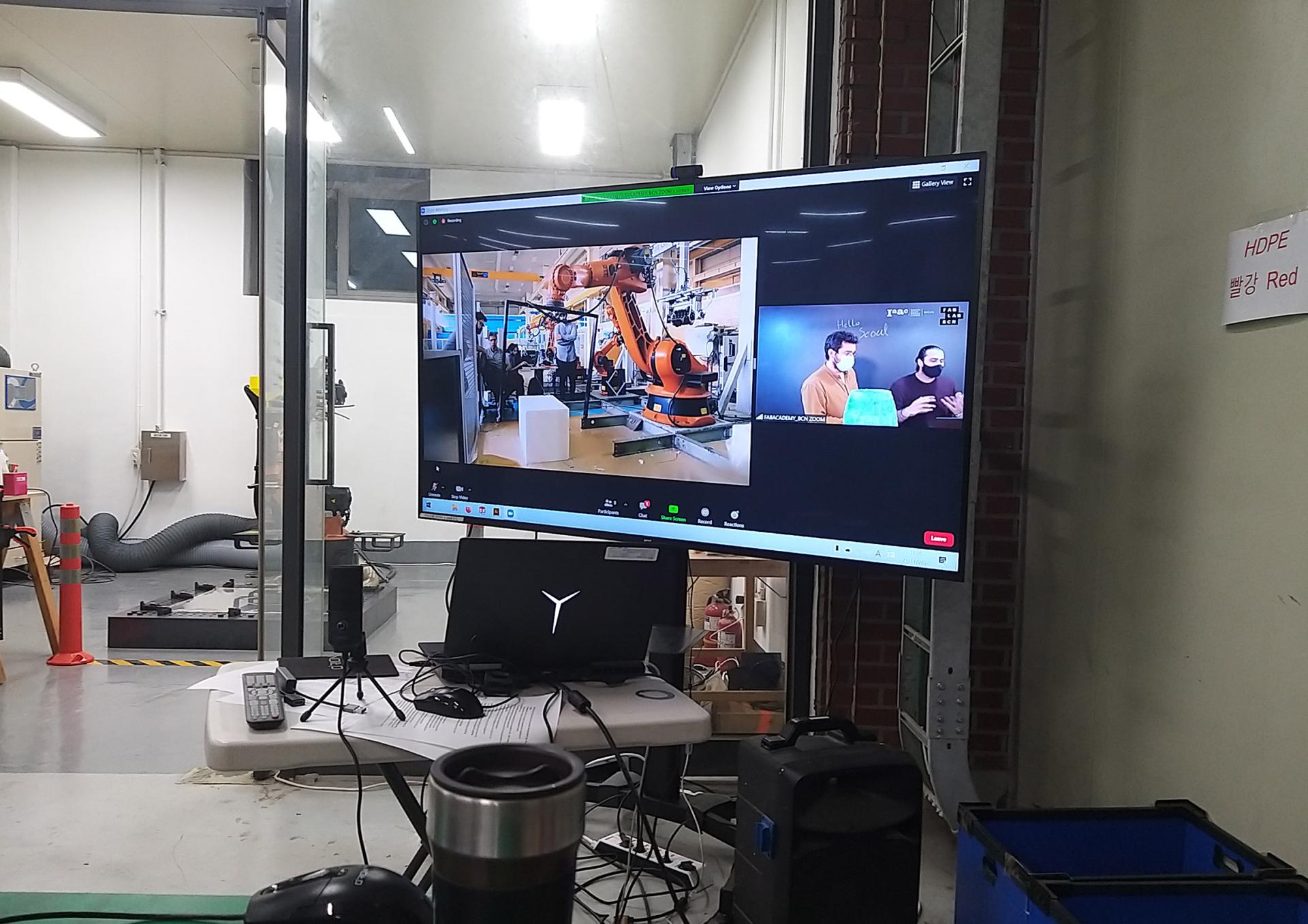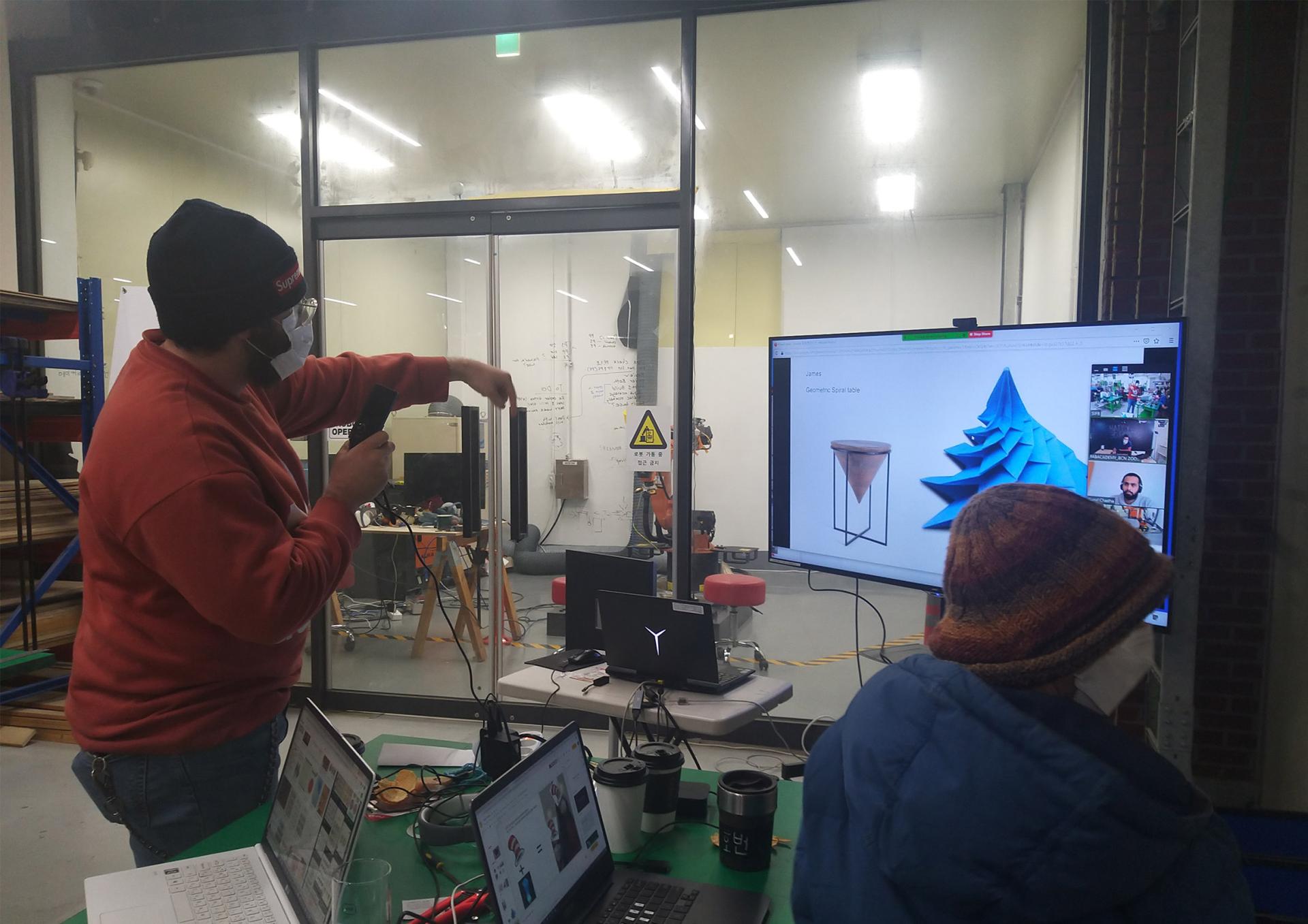Hyper-connected Learning
Basic information
Project Title
Full project title
Category
Project Description
The goal of the research was to investigate the impact of a hybrid model and remote education with respect to pragmatic design exploration and making. For that purpose, a unique workshop was conducted with the collaboration of two applied research institutes in Barcelona (Spain) and Seoul (South Korea), aiming to provide a knowledge transfer around the globe on a recurrent topic of '3D printing recycled city plastic ' through an intensive pedagogical course using robotic fabrication tools.
Project Region
EU Programme or fund
Description of the project
Summary
CONTEXT
The emergence of virtual classrooms has deeply impacted and transformed the educational methodologies and protocols, in particular since the dawn of the COVID19 pandemic. This sudden change from on-campus to virtual learning spaces has also presented a unique opportunity to teach locally and reach globally. The following paper aims to present a pilot educational framework stimulating distributed learning through prototyping using remotely controlled machine systems.
CHALLENGES
Traditional architectural courses rely on a high load of content delivered in person due, as well as the requirement of physical access to labs to facilitate building prototypes and developing different competencies that relate to the physical world. With the current pandemic, these educational formats have been forced to move into online courses due to imposed health regulations since the outbreak of COVID19 pandemic, consequently pushing for them to adapt to these conditions and face the challenge and complexity of doing so without compromising the educational content and quality.
RESEARCH SCOPE
The hybrid model discussed in this paper is considered as a format where faculty is online and students are in part in person together with faculty assistants and in part remotely connected. Distance learning, as an educational model, is tested throughout the paper within a digital fabrication framework through daily probes incorporating plastic recycling, 3D printing, and robotic fabrication.
Key objectives for sustainability
A key objective is to identify the ways in which a hybrid model approach is not merely a replacement for a full physical format of delivery but a viable alternative that adds value to an overall learning experience, as well as to developing remote teaching methodologies for distributed learning practices focused on design and hands-on practices.
Key objectives for aesthetics and quality
METHODOLOGY (Hybrid model)
The workshop was tested during an empirical and intensive two-week program in ‘Recycling and 3D printing of plastics from city waste’. The workshop was designed to fill knowledge gaps between the host institutes and explore the possibilities of those technologies whilst testing alternative practice-based teaching methods, as opposed to the traditional remote master class format. The process is separated into two distinct phases.
- The first phase was an introduction to the workshop content followed by several training days focused on 3D printing, robot arms kinematics/controls, and plastics extrusion. In this initial phase, the participants learned how to use the equipment and get introduced to a holistic approach to the combined processes in a theoretical framework.
- In the second phase, the participants developed their own digital-to-physical concepts where they designed based on the fabrication knowledge acquired during the prior week and experimented with scaled prototypes to test the fabrication techniques. The workshop concluded with the production of final 1:1 scale printed objects.
This format poses several challenges from an educational structure point of view: not only do the different topics proposed through the development of the workshops demand their own dedicated learning strategy, but these need to be interwoven to make the fragments of knowledge - given asynchronously - complement each other.
The hybrid model of the workshop allowed for greater reach and transfer of knowledge, as well as improving faculty and student engagement. In order to ensure constant communication between the remote instructors and students during the practical sessions, the local instructors focused on consolidating and verifying that the knowledge was properly acquired during the hands-on sessions, and provided onsite guidance during physical prototyping.
Key objectives for inclusion
A workshop based on the framework was conducted during November 2020 between IAAC and Fab Lab Barcelona (Spain) and Seoul Innovation Lab (S.Korea). The workshop successfully concluded with a series of 3D printed objects using recycled plastic from the city waste. The project included participants from various disciplines who contributed to the results of the workshop (attached to the application).
Innovative character
The research that has been carried out thus far with regards to the hybrid model for practice-based education provides valuable insights on distributed learning approaches.
One key takeaway from this course is that online learning, when approached as a mixed model, both synchronous and asynchronous, can result in educational experiences that do not merely compensate for the lack of physical interactions but exceed them by providing a space where students can concurrently develop autonomous design thinking behaviors. This allows for improved team interaction as the dependency on the individuals grows together with the knowledge acquired in a controlled and established education environment.
The research demonstrates that the initial limitations arising from remote educational models in relation to practice-based learning can potentially be balanced out or even overcome depending on the context of the course, approach, and embedded interaction modes, if properly adapted through its methodologies.








